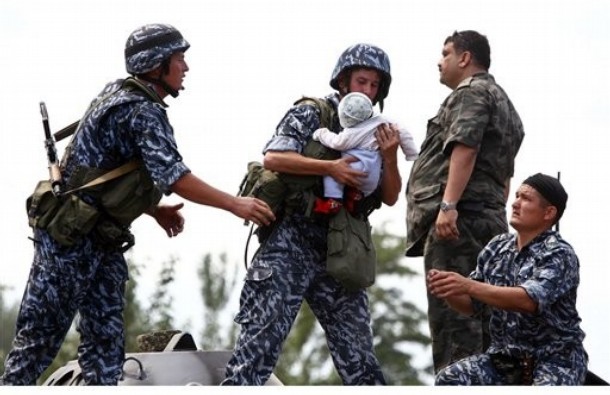
From James F. Collins and Matthew Rojansky, the New York Times: The crisis in Kyrgyzstan presents an opportunity for three multilateral groups working in the area — NATO, the Collective Security Treaty Organization (C.S.T.O., an alliance of seven former Soviet states currently chaired by Armenia), and the Organization for Security and Co-operation in Europe (O.S.C.E.) — to do real, immediate good while building trust and demonstrating that cooperation is possible in the increasingly interconnected and fragile Eurasian security space. …
In recent years, Russia has sought to expand C.S.T.O. capabilities through a partnership agreement with the Shanghai Cooperation Organization, a security forum which includes Russia, China and four of the Central Asian republics, and creation of a standing rapid reaction force, which remains a work in progress. Some in the West have regarded the C.S.T.O. as a tool of Russian expansionism, and are reluctant to see NATO or the O.S.C.E. engage with it directly.
However, the C.S.T.O. does serve Russia’s legitimate interests in collective security and stability in the post-Soviet space, which is focused in Central Asia on securing energy supply lines and stemming the flow of narcotics, weapons and human trafficking across Russia’s vast porous border. To work around the C.S.T.O. during the present crisis would suggest wrongly that the U.S. and NATO are more interested in rolling back Russia’s influence than in regional security. …
By holding out a hand not only to the Kyrgyz authorities, but to natural regional partners, including the C.S.T.O., and the O.S.C.E., the United States and NATO can demonstrate the sincerity of their interest in regional security.
James F. Collins, U.S. ambassador to Russia from 1997 to 2001, is director, and Matthew Rojansky is deputy director, of the Carnegie Russia and Eurasia Program. (photo: AP)
Image: 6%2015%2010%20Kyrgystan%20soldiers%20Osh.jpg
